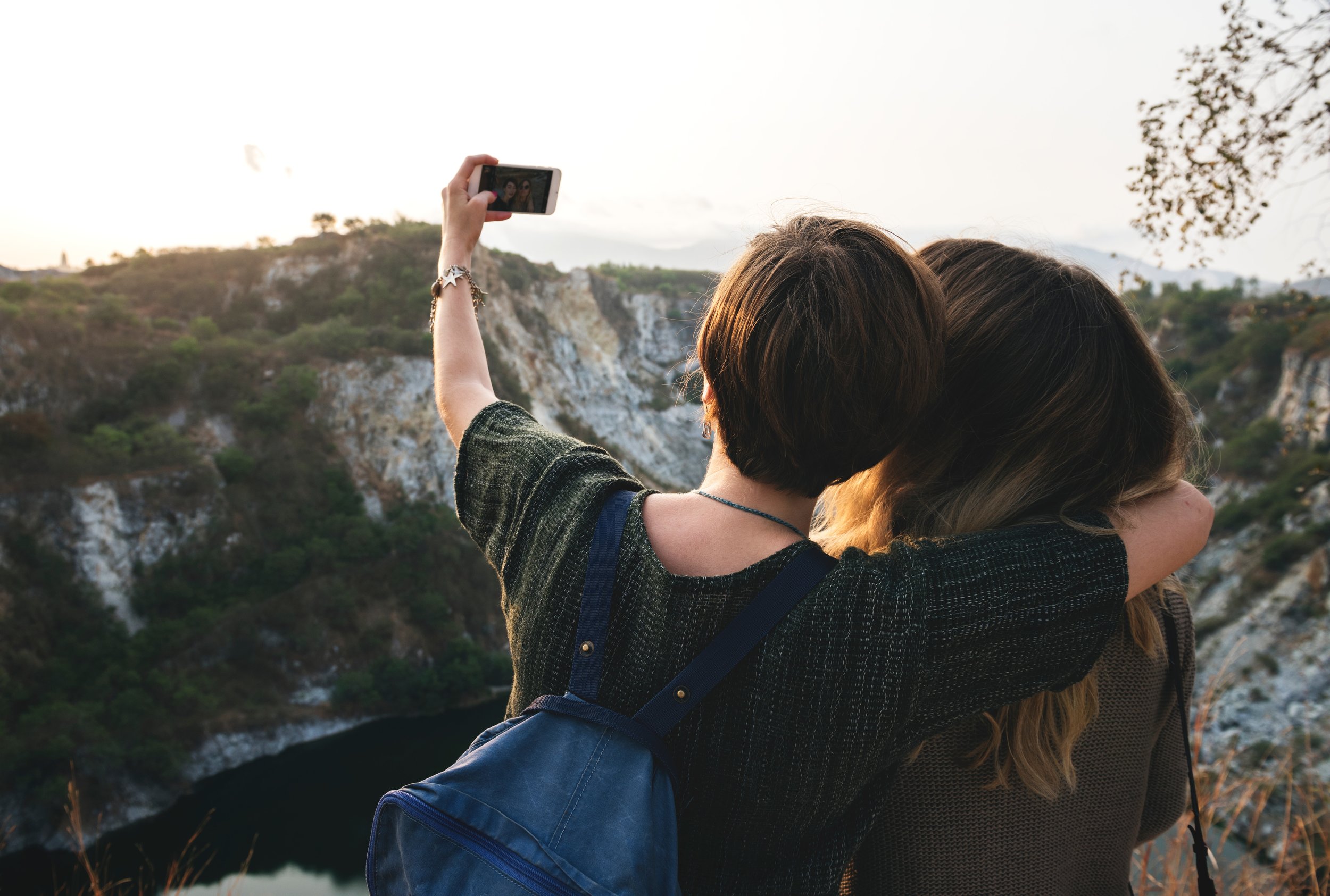Welcome To "The Facetune Generation"
Over a year ago, I read an article about Barack Obama banning the pubic from getting selfies with him at events. At first it seemed like he was doing this to avoid the endless swarms of people who no doubt flock to him wherever he goes. He went on to explain however, that it wasn't the people that were the problem. He said he missed a time when meeting individuals involved eye contact, a firm handshake and some conversation. Instead people would hijack the opportunity to strictly ensure that they got that invaluable selfie “for the gram”. The story went viral because it spoke to us about just how far we’ve thrown ourselves into the digital world of selfies.
Fast forward to 2018 and we’re now all “living our best lives” at a rate which we haven’t seen before. Smartphone manufacturers now pump more and more into developing and marketing their rear and front facing cameras. They claim that these advancements can improve our selfies, portraits and show us in the best light possible. This is of course also a reaction to the way in which we use our phones to show off our daily lives and tell our stories. With a recent report claiming that over 250 people have died while trying to get a breathtaking selfie in the last few years, it’s clear that the obsession goes too far for some.
This isn’t just another modern issue that has been brought about by the millennial generation either. Ever since cameras were invented, people have been acutely aware of their best angle, favourable lighting and other elements of editing that can enhance our images. In the last year however, the world of selfies has brought about a worrying trend.
When the Irish Instagram page “BloggersUnveiled” started in 2018 and exposed the dodgy dealings of Influencers and brands on social media, it began to amass a huge following. Among other things, the page showed us all how widespread the use of picture manipulation apps had become among online influencers. In the months since BU has been deactivated, it appears that lots of people have gotten over the initial shock of this and started using the apps themselves.
Ever been scrolling through your newsfeeds and scratching your head over why someone you follow now looks almost like a cartoon version of themselves? Well if you’re not familiar with the app they’re using, it’s called “Facetune” and it’s recent popularity (now at over 5 million downloads) has opened up a scary world of photo manipulation to the masses. It essentially allows users to brush away any perceived defect on your face and completely alter your shape.
How good is it though? Well I downloaded it to find out. I took the below on the left after a night out (hence the no life behind the eyes and coldsore) and decided to see just how gorgeous I could make myself with the app. The picture on the right is the final result.
With tutorials on the app you can quickly learn the ways you can brush, smooth, remove and enhance any part of a picture. Some of the edits I made to the left photo was to smooth out my face, nose, hair and remove all freckles, scars, stubble and the coldsore. I then gave my eyes some much needed life. Finally I brought my cheek bones in and made my nose thinner.
These are all edits and features that the app highlights as being popular with users. Side by side the differences are pretty clear but had I uploaded the one on the right to my instagram I wonder if people would have noticed that something was up. My mam said that she much prefers the one on the left so If I did have any niggling hang ups, they’d have been forgotten after those kind words. <3
So what has turning myself into a Ken Doll like avatar taught me? I don’t think it’s really taught me all that much. I do worry about the impact of what apps like this may have on impressionable teenagers, but then again magazines and TV have always churned out images of unattainable perfection to the masses. In 2013, a viral video showed us just how much photoshopping goes into models we see in magazines.
The video has eerie similarities to the types of adjustments you can make on Facetune just a few years later proving that mobile photography technology can compete with that used by production houses. It’s not too long ago that people thought putting filters on our pictures was deceiving yet now we routinely scroll through each of them before giving ourselves a healthy glow and hitting that share button. I think we are just seeing the evolution of this and more people will start to join those online who push an image that in no way resembles what they really look like. I can safely say however that I won’t be joining the Facetune generation any time soon.
Looking to give your brand a digital face lift but in the right way? Get in touch with me today and we can put a plan in place. You can also follow me on Instagram and Facebook.

